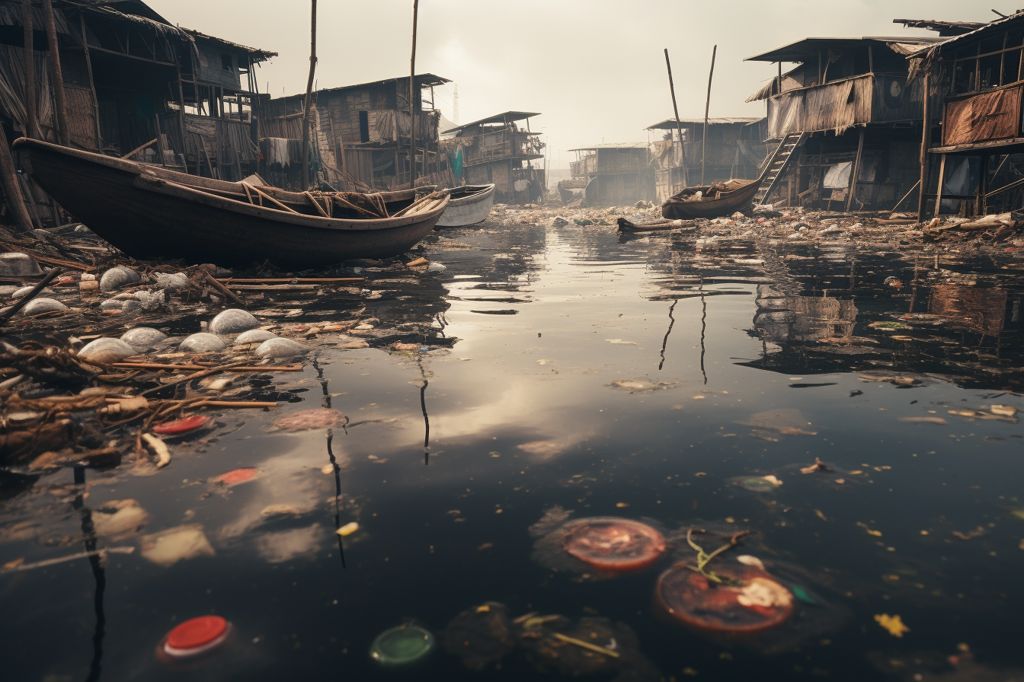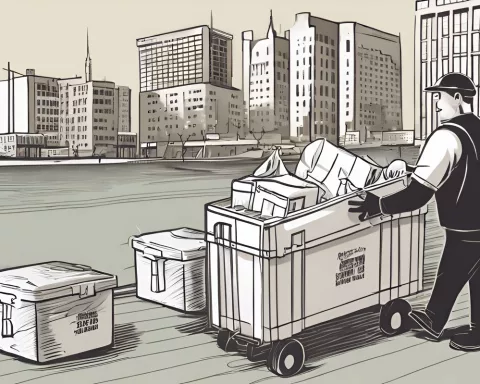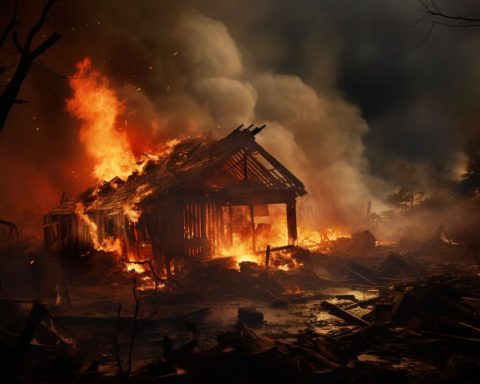A Tragic Incident Amidst the Heavy Rain
On a fateful Sunday and Monday, fierce winds and torrential rain hit the Western Cape, compelling hundreds of families to abandon their homes as they fell victim to flooding. In Mfuleni’s Covid Village, a distressing situation occurred when a man lost his life, likely electrocuted by a live wire hidden in the floodwater.
Community leader Thembisa Thuba shared the agonizing experience of 2,000 families in Mfuleni, who had to leave their shacks and possessions as the rain fell without ceasing. Clothing, bedding, and electronics were washed away, forcing people to focus on their own safety.
In an effort to find refuge for the flood victims, Thuba and other community leaders took the initiative to open empty shacks that had been locked. As the storm continued, 32-year-old Zukile Komani met a tragic end, thought to have been electrocuted after the Kuils River burst its banks and inundated the area.
The Chilling Discovery and Urgent Needs
Mxolisi Melento, Komani’s neighbor, recounted the chilling moment when he found Komani’s body outside his flooded shack at around 6 am. Initially mistaking the hood of Komani’s jacket for clothing washed away by floods, Melento was horrified to reveal his lifeless body, face down in the water. It is assumed that Komani touched electrical wires from illegal connections concealed in the water.
Melento himself suffered an electric shock when he tried to step off his bed and onto the floor. Thuba also experienced a similar shock while attempting to break chains and padlocks at some shacks. To avert further electrocutions, all illegal connections were disconnected to ensure residents’ safety.
Flood victims are now in dire need of blankets, food, and clothing. Thuba appealed to spaza shop owners for assistance in supplying the victims with sustenance. With heavy rainfall making their usual methods of trenches ineffective, Thuba expressed that the current floods are worse than previous ones.
Yandisa Sono, a local resident, woke up to a community leader’s urgent warning about increasing water levels in their shacks around 3 am. With his shack already flooded, Sono grabbed his ID, closed the door, and escaped, leaving behind his soaked groceries, bed, cupboard, and electrical appliances.
Another inhabitant, Deneo Molekwa, awoke to knee-high rainwater around 4 am and quickly left without any change of clothes. Surviving on a modest R350-a-month government grant, Molekwa’s cupboard and bed were severely damaged by the floods.
Fikiswa Tyembile’s shack was almost entirely submerged in water when GroundUp arrived. She explained how she and her daughter had evacuated at the first sign of heavy rain, prioritizing their safety.
Overflowing Sewage and Weather Warnings
In Siyahlala informal settlement, Dunoon, the rain caused an already blocked sewage system to overflow, sending a repulsive river into nearby shacks. Anele Marangxa, a mother of three, woke up to a horrible smell and worked with her husband to remove the filthy water from their one-room shack. A leaking roof only worsened their situation.
Community leader Zukiswa Khaphakhati confessed her inability to help five families who sought her assistance early in the morning. Flooding also greatly affected other informal settlements in Dunoon, Khayelitsha, Philippi, and Strand.
In reaction to the disruptive rain and gale-force winds, the South African Weather Service issued a level 9 warning. The N2 at Bot River was closed due to a washed-away bridge, diverting traffic to Swellendam, while the N1 between De Doorns and Worcester was closed as well, rerouting traffic through Wolseley, Ceres, and Trompsberg pass.
City of Cape Town disaster risk management spokesperson Charlotte Powell estimated that the rain would subside by Monday evening but warned that very high winds would continue for another three hours. As the Western Cape endures this storm, the harrowing accounts of its residents serve as a stark reminder of the devastating consequences of such natural disasters.












